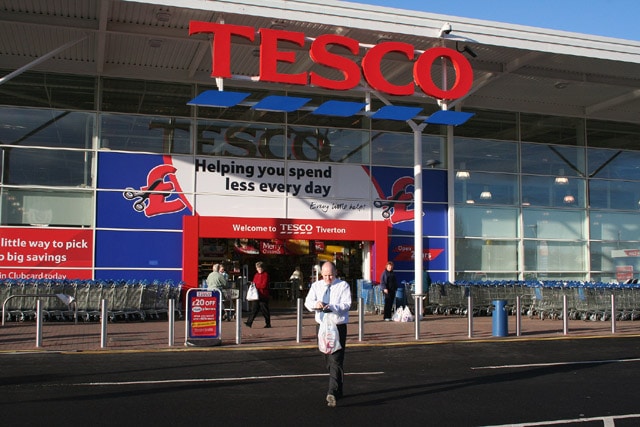After finding Britain’s largest supermarket seriously breached a legally-binding Groceries Supply Code of Practice (the Code) to protect groceries suppliers, the Groceries Code Adjudicator (GCA) has told Tesco to introduce significant changes to its practices and systems.
The adjudicator, Christine Tacon, said in her report that she was particularly concerned about three key issues – Tesco making unilateral deductions from suppliers, the length of time taken to pay money due to suppliers, and in some cases an intentional delay in paying suppliers.
Tacon’s five recommendations, which followed an investigation covering the period 25 June 2013 to 5 February 2015, include stopping the multiple from making unilateral deductions from money owed for goods supplied. Suppliers can challenge any proposed deduction within 30 days and if challenged Tesco won’t be able to make the deduction.
She has also ruled that the company must correct pricing errors within seven days of being notified by a supplier.
In addition, Tesco has been told to improve its invoices by providing more transparency and clarity for suppliers and to put its finance teams and buyers through training.
Tacon said: “The length of the delays, their widespread nature and the range of Tesco’s unreasonable practices and behaviours towards suppliers concerned me. I was also troubled to see Tesco at times prioritising its own finances over treating suppliers fairly.”
During the investigation Tacon found delay in payments arising from data input errors, duplicate invoicing, deductions to maintain Tesco margin; and unilateral deductions resulting from forensic auditing, short deliveries and service level charges. “The sums were often significant,” she said, “and the length of time taken to repay them was too long.”
The GCA has set a four-week deadline for Tesco to say how it plans to implement her recommendations.
The Adjudicator found no evidence of Tesco requiring suppliers to make payments to secure better shelf positioning or an increased allocation of shelf space in breach of the Code. However, she was concerned to find practices that could amount to an indirect requirement for better positioning. These practices included large suppliers negotiating better positioning and increased shelf space in response to requests for investment from Tesco, as well as paying for category captaincy and to participate in Tesco range reviews.
She said: “I am concerned that as a result of these practices the purpose of the Code may be circumvented to the detriment of smaller suppliers who cannot compete with payments for better positioning, category captaincy or to participate in range reviews.
“I have decided to launch a formal consultation with the sector, involving both retailers and suppliers, to help me reach a firm conclusion on whether these practices are acceptable.”
Responding to the report, Tesco CEO Dave Lewis, said: “In 2014 we undertook our own review into certain historic practices, which were both unsustainable and harmful to our suppliers. We shared these practices with the adjudicator, and publicly apologized. Today, I would like to apologize again. We are sorry.”
“We have changed the way we work by reorganizing, refocusing and retraining our teams and we will continue to work in a way which is consistent with the recommendations.”











